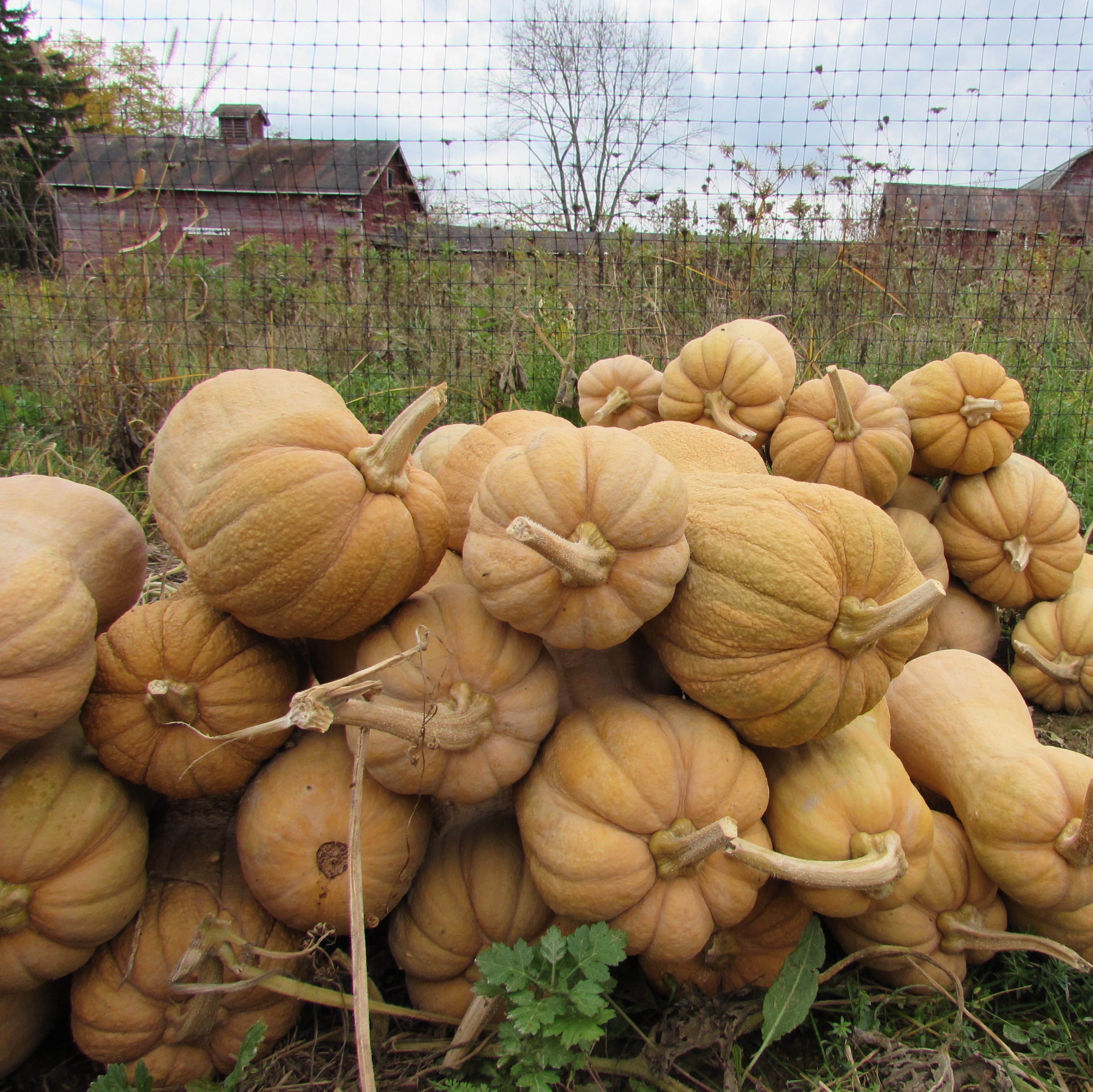Living through periods of crisis and uncertainty emphasizes what gardeners have known all along: that gardens provide—in addition to a source of pride and joy—a source of sustenance. It reminds us why people began cultivating crops, breeding plants, and saving seeds in the first place. As providers of open-pollinated seed, we're heartened to see that, as grocery stores are pushed to their limits, people are taking matters into their own hands. Whether in times of trouble or no, your garden can be a source of fresh, delicious, and nutritious food. Today, we'll look at a few crops you may want to try this season. They're easy to grow, easy to store, and nutrient dense.
GENERAL TIPS

If you're looking to grow food for you and your family, consider the following:
- Indeterminate varieties: Unlike determinate varieties, indeterminate plants continue growing all season and stagger their fruit production as they grow. Most of our tomatoes and cucumbers, and many of our beans and peas, are indeterminate. Trellis them for the best results.
- Container gardening: Not everyone has a spacious backyard in which to grow a victory garden. That doesn't mean, however, that you can't grow your own food. A remarkable range of seeds can be grown in containers. Some, like herbs, can even sit on your kitchen window sill. For more tips and variety suggestions, read our container gardening article.
CROP CHOICES

You're likely to see some of your favorite veggies in this list. They're high-calorie, easy to grow, and perfect for storing and eating after the season has ended. Let's touch on their benefits, how to grow them, and which varieties make the best food crops.
- Summer squash: Known the world over as the over-achievers of the veggie world. Vigorous, sprawling vines produce an absurd amount of food. Start squash seeds indoors 2-3 weeks before last frost or direct sow outdoors after last frost. Sow 2-3 more times at monthly intervals for fruit all season. Squash tolerates moderate soil fertility and dry conditions. Check your plants frequently and harvest the fruit while still small and tender.
- Costata Romanesca Zucchini
- Golden Crookneck Squash
- Winter squash: Plant winter squash in the spring for fruits that will mature in late fall and provide a delectable, storable treat all winter. Direct sow after frost, or start under protection up to 3 weeks before (but no earlier—it grows very quickly at this stage). Plant in well-fertilized hills of 4-8 seeds with hills spaced 3' apart. Thin to 3 plants per hill. Harvest when color is well developed and rind is hard. To cure squash that will store all winter, place it for a week in the sun and fresh air, but protect it from frost.
- Long Island Cheese Pumpkin
- Canada Crookneck Squash
- Potatoes: What better food to have lots of? These starchy tubers are filling and delicious cooked in nearly any manner. We have a whole article on how to grow potatoes. Check it out!
- Keuka Gold Potato
- French Fingerling Potato
- Roots: Carrots, radishes, parsnips, turnips, and rutabagas are colorful and nutritious, and most can be succession sown. The growing instructions for each will vary slightly, but as a general rule, fast-growing carrots and radishes (and the scrumptious Tokyo Market Turnip) can be direct sown in spring and succession sown every few weeks through the fall. Sow in furrows and thin to a few inches apart. Turnips are best sown once in the spring and once in the fall, whereas parsnips and rutabagas, which germinate and grow slowly, should be started early and harvested in the fall.
- Red-Cored Chantenay Carrot
- German Giant Radish
- Tokyo Market Turnip
- Corn: Yes, this staple can be grown by the home gardener. The key is to plant it in blocks of at least 4 rows so the plants properly cross pollinate and fertilize the kernels. Direct sow corn after the threat of frost has passed, 3-4" apart, in rows spaced 36" apart. Water during dry periods. Consider what you'd like to grow your corn for: sweet corn can be succession sown until mid-summer for a staggered fresh-eating harvest. Other varieties are longer to mature and can be dried to make your own cornmeal.
- Ashworth Sweet Corn
- Otto File Flint Corn
- Beans: Hardy plants produce pods full of protein. Some beans are meant for fresh eating, and can be blanched and frozen for later, while others are harvested when dry and cooked in soups, sides, and more. Bush beans are great for big one-time harvests, but we recommend indeterminate pole beans, which give fewer beans over a longer period of time. Direct sow beans after last frost 3-4" apart and provide a sturdy trellis.
- Ideal Market Pole Bean
- Hank's X-Tra Special Baking Bean
STORAGE

As they say: waste not, want not. Each crop has its own particulars when it comes to harvesting and storing. Read this article for a comprehensive overview, and search our blog for even more tips.
A garden is a good friend. If you love it, it will love you back, and it will support you through good times and bad. And like a good friend, it can encourage you to connect with others: to reconnect with old friends and maybe make some new ones. If you grow more than you need this season, consider giving it away to those you love (and those you don't!), or to those in need. Each sown seed grows a little safety and security for us all.

